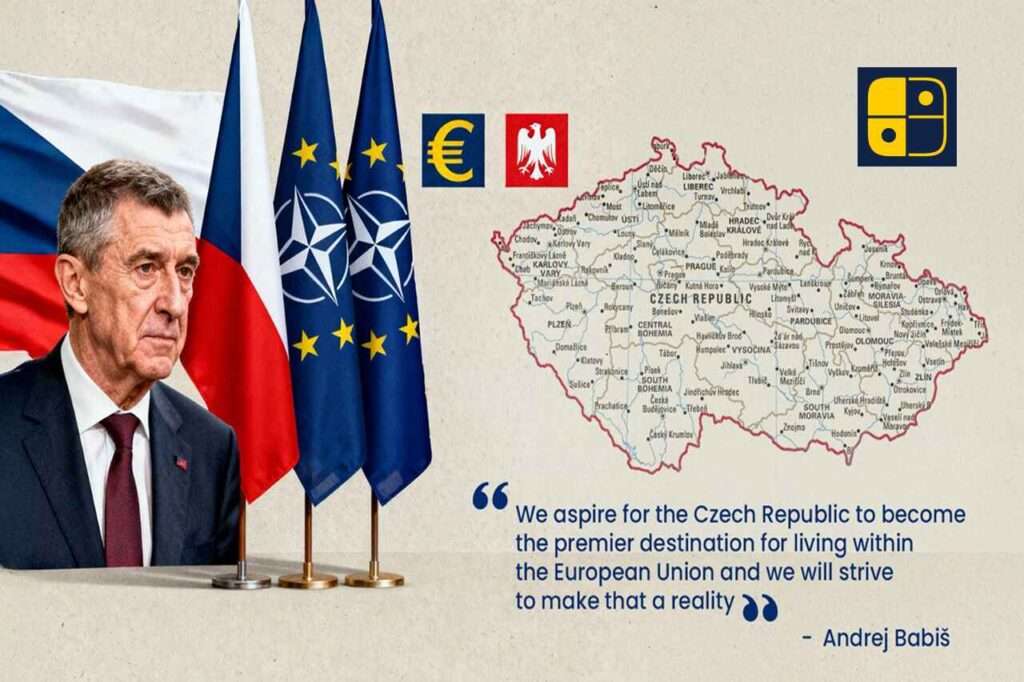In the Czech Republic parliamentary elections of October 3–4, 2025, former Prime Minister Andrej Babiš’s populist party, ANO, emerged victorious, winning 34.5% of the vote, with 80 members elected to the 200-seat Parliament. Having won enough votes to potentially return to power, challenges remain for Babiš, who would need to secure governmental stability through talks with smaller right-wing and far-right parties.
This recent Czech election victory of Andrej Babiš’s populist ANO party is likely to increase geopolitical tensions and create significant challenges both domestically and within the EU.
Geopolitical Tensions and Challenges
- EU Relations: Andrej Babiš has consistently held a euroskeptic position through his ANO party, opposing deeper European integration, the euro, and EU immigration quotas, while also emphasizing a pragmatic commitment to keeping the Czech Republic in the EU and NATO. Babiš maintains EU rhetoric on the weaknesses of the EU and ideas related to the Green Deal or immigration policies, however he does not shy away from rejecting calls for referendums on EU or NATO membership, even compared to more radical nationalist allies like the far-right SPD party. His engagement with nationalist populist leaders in central Europe, such as Viktor Orbán of Hungary and Robert Fico of Slovakia, has pushed Czechia in a more nationalist euroskeptic direction in line with those countries, which could complicate EU cooperation in the future, but Babiš reportedly wants to stay out of conflict with Brussels, as he has business interests in Western Europe and also wishes to maintain key Western ties.

- NATO and Ukraine Support: The new government may cut military and financial assistance to Ukraine, support that was substantial with the prior government. Babiš has suggested the potential termination or reduction of the Czech Ammunition Initiative contributing to the aid of Ukraine, signaling less active involvement in support of Ukraine, fighting against Russia’s invasion.

- Coalition Complexities: In order to assume office, Babiš will probably require assistance from far-right parties such as the SPD, which advocate for a referendum on leaving the EU and NATO. A coalition with these parties may be vulnerable due to various views on foreign policy and increased euroscepticism in Czech foreign policy.
- Domestic Instability: A minority or vulnerable coalition could induce political instability, an unmanageable avenue for enacting reforms, tackling economic issues, and sustaining a reliable foreign policy agenda.
- Regional Impact: There are indications that Czechia could shift towards alignment more with Hungary and Slovakia’s nationalist governments, potentially forming a Central European bloc that pushes back against some EU policies and complicates EU cohesion on foreign and security issues.
Possible Positive Aspects
- On certain economic issues, Babiš may be practical and maintain helpful defense industry connections, potentially by continuing limited support to Ukraine.
- Change in the political scene may lead to reopening conversations about national sovereignty and discussion of economic reform in response to some public grievances with the current state of affairs.
Conclusion:
Andrej Babiš’s electoral victory could lead to a reorientation of foreign policy in a more nationalist and Eurosceptic framework. He has affirmed his commitment to NATO and EU membership but is negotiating the composition of its coalition government with far-right parties, all while opposing military assistance to Ukraine. This shift could have significant ramifications for the EU and NATO unity, as well as for the broader Central European region. The next months will be pivotal in shaping Czech foreign policy directions and broader European implications.


